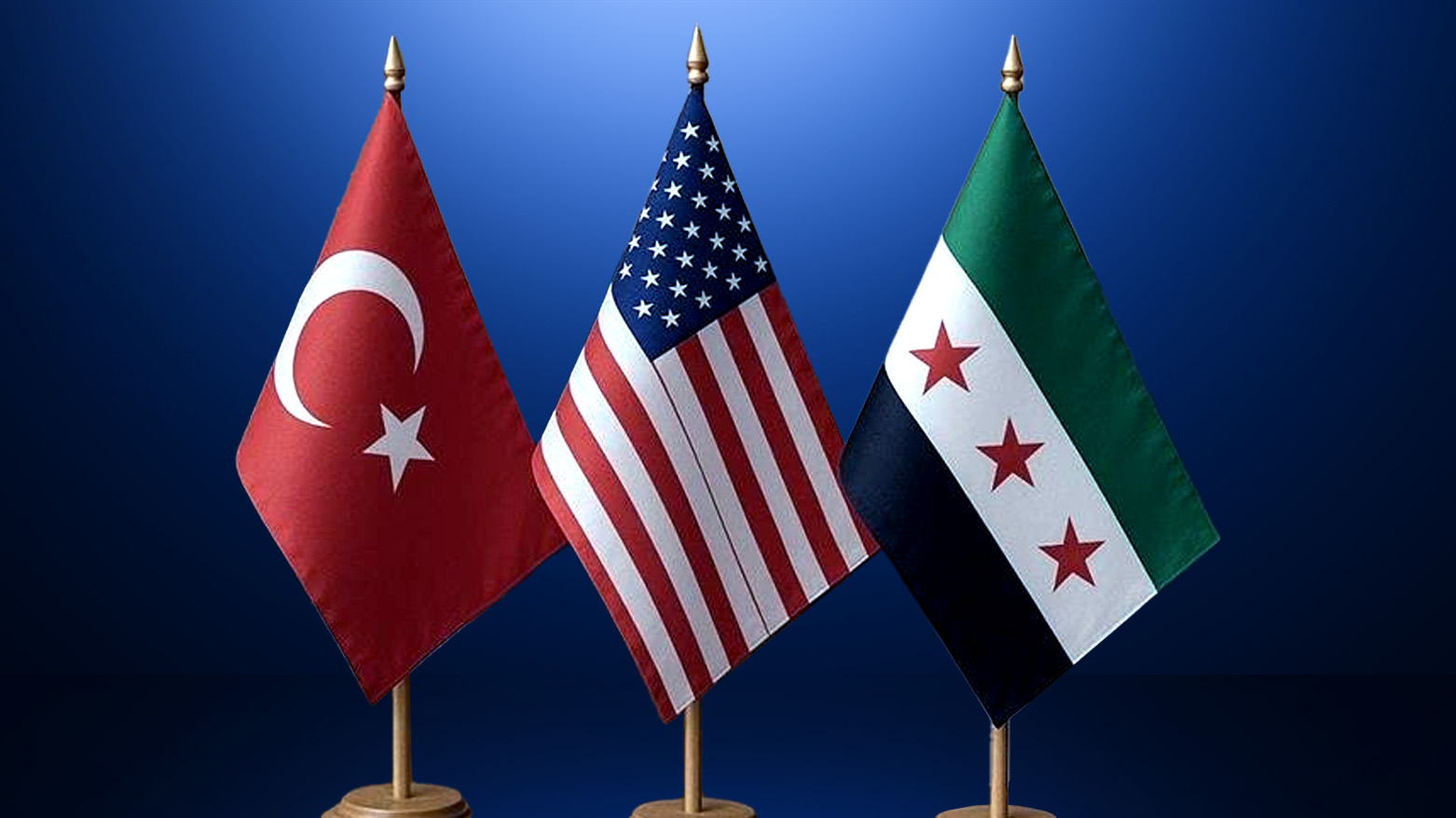US-Türkiye Meet to Coordinate on Syria
The lifting of US and EU sanctions is intended to help Syria’s new leadership establish an effective regime, rather than preside over one more failed state in the region.

WASHINGTON DC, United States (Kurdistan 24) — The U.S.-Türkiye working group on Syria met in Washington on Tuesday under the leadership of U.S. Deputy Secretary of State Christopher Landau and Turkish Deputy Foreign Minister Nuh Yilmaz.
The meeting follows on U.S. President Donald Trump’s visit last week to the Middle East, where he stopped in Saudi Arabia, Qatar, and the UAE.
Read More: Trump Visits Middle East—Focused on Economic, Rather Than Security Issues
Turkish, Saudi Support for the New Regime in Damascus
Türkiye was behind the overthrow of Syria’s Baathist regime last December. Hayat Tahrir al-Sham (HTS), the group led by Syria’s transitional president, Ahmed al-Shara’a, could not have overthrown Bashar al-Assad without Turkish support.
That is how Americans used to understand major terrorist actions—they were basically state-sponsored, a form of proxy warfare.
However, that changed dramatically in the early 1990s, after Bill Clinton became president. Clinton opted to focus on individuals and groups, while overlooking the role of states in such activities.
However, understanding that Turkey backed al-Shara’a helps explain why Ankara is such a strong supporter of the new regime in Damascus.
It also explains the position of Saudi Arabia, which also backs the new Syrian regime. In short, HTS’s overthrow of the Assad regime, which was aligned with Iran, was a major blow to that country, which, in turn, was an opponent of Turkey and Saudi Arabia.
Both Saudi Crown Prince, Mohammed bin Salman, the country’s de facto ruler, and Turkish President Recep Tayyip Erdogan pushed Trump to lift U.S. sanctions on Syria—which Trump announced as his new policy, while he was in Riyadh.
Read More: Saudi Arabia Welcomes Trump’s Sanctions Relief on Syria at Arab Summit in Baghdad
Trump’s announcement was followed by a European Union (EU) decision on Tuesday to lift its own sanctions on Syria.
The lifting of U.S. and EU sanctions is intended to help the new Syrian leadership establish an effective working regime, rather than preside over one more failed state in the region.
Indeed, U.S. Secretary of State Marco Rubio, testifying at a Senate hearing on Tuesday, warned that Syria’s “transitional authority, given the challenges they're facing, are maybe weeks -- not many months -- away from potential collapse and a full-scale civil war of epic proportions, basically the country splitting up.”
Read More: Rubio says Syria could be weeks away from 'full-scale civil war'
Lifting sanctions, it is hoped, will avert that worst-case scenario.
U.S.-Türkiye Working Group
“The United States and Türkiye are committed to increasing cooperation and coordination on stability and security in Syria as outlined by President Trump and President Erdogan,” the joint statement issued by the working group following Tuesday’s meeting began.
The statement explained that the mechanisms for carrying out Syrian sanctions relief and “combatting terrorism in all its forms and manifestations” were the top two issues discussed by the working group.
Türkiye considers the Kurdish-led People’s Protection Units (YPG), America’s main partner in the fight against ISIS in Syria as a terrorist group, essentially the Syrian branch of the Kurdistan Workers’ Party (PKK.)
Although the U.S. has reduced its troop presence in northeast Syria since the fall of the Assad regime, it still maintains around 1,400 forces in the area, according to a report last month in The New York Times.
The statement of the working group also affirmed, “The United States and Türkiye share a vision for Syria that is stable and at peace with itself and its neighborhood, which will also allow millions of displaced Syrians to return home.”
Over 13 million Syrians have been displaced by the decade-long civil war. Some six million Syrians are refugees in other countries, while another seven million are internally displaced.
Türkiye hosts the largest number of Syrian refugees, with 2.8 million living in the country. Iraq hosts over 300,000, with the majority living in the Kurdistan Region.
The statement concluded by stressing “the importance of maintaining the territorial integrity of Syria,” as it affirmed that “a stable and united Syria, which does not offer a safe haven for terrorist organizations,” will help promote “regional security and prosperity.”